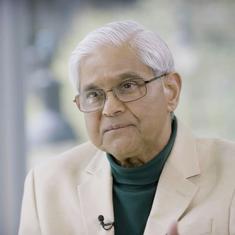What could Brazilian President Jair Bolsonaro and Indian Prime Minister Narendra Modi possibly have in common? At first sight, very little, given the enormous differences in terms of their background and upbringing.
Bolsonaro was born into a white, middle class family of Italian ancestry. His father was a dentist. Modi comes from rather more humble circumstances, as is well known from his stories of having helped his family in its tea shop. Bolsonaro studied at Brazil’s prestigious military academies and served as captain in the Army before moving to Rio and making his political career there and in the capital of Brasília. Modi remained in Gujarat, a professional politician at the periphery.
But there are also interesting similarities. Bolsonaro initially ran for the Christian Democratic Party and his recent success comes from his religious appeals aimed at evangelical Christians. Modi, in turn, joined the Rashtriya Swayamsevak Sangh and played a crucial role in prioritising the Hindu religion in partisan politics and public policy. Through the Brazilian Army and the Rashtriya Swayamsevak Sangh, Bolsonaro and Modi have benefitted from organisations that privilege discipline and hierarchy.
While they have met before, the success of Bolsonaro’s visit to India as chief guest at the Republic Day ceremonies will depend on the personal chemistry of these two populist leaders, both of whom aim to steer their countries into new directions.
Nationalist ideology
Jair Bolsonaro has changed political parties nine times in his life and just launched a new political party called the Alliance for Brazil – Aliança pelo Brasil or APB. Despite this, he has never changed his political ideas, which are based on a nationalist, authoritarian and religious discourse.
The Christian evangelical community forms the backbone of his electoral support. Bolsonaro’s authoritarian impulse, while legitimised by democratic elections, is reflected in his propensity to use presidential decrees, bypassing other parliamentary and deliberative decision-making systems. This unprecedented centralisation is also reflected in his son, senator Flávio Bolsonaro, being appointed as the APB’s vice-president.
Either way, Bolsonaro’s career, from military service to a federal congress member through Rio de Janeiro and finally president, bring to light his tenacity in implementing his ideas. His political instinct couched in populist rhetoric found wide support, as was evident from the 55% vote share that he obtained in the last general elections in 2018.
Bolsonaro’s tenacity in pursuing goals, similar to Modi’s, is also proverbial. His struggle for Brazil’s pension reform project, a crucial step in changing the structure of the Brazilian economy, is his biggest economic victory so far. The government estimates that the pension reform will save about $260 million over the next ten years, a major achievement of Bolsonaro’s effort to solve the structural problems of his country’s economy.

Modi’s equally populist and charismatic character with authoritarian tendencies is well known. However, despite the cult around his personality, Modi’s success is anchored in the heavy and traditional party structure of the Bharatiya Janata Party. India’s parliamentary system of government is also more complex than Brazil’s, giving the prime minister less discretion than Brazil affords its president.
Modi’s personality also seems less mercurial than Bolsonaro’s: despite all the accusations of being a “divider in chief”, he seems less emotional and communicative than his Brazilian counterpart, who is often called the “Trump of the Tropics” because of volatility and abrasiveness.
Cristovam Buarque, former Brazilian Minister of Education and Governor of the Federal District of Brazil, agreed that Bolsonaro and Modi have a certain similarity in nationalism, economic liberalism and populism in speech. But there are differences. “Modi looks like a politician tested well in the exercise of power, with philosophy and pragmatism,” said Buarque. “Bolsonaro has a militaristic formation and has gone through political mandates without political practice of proposition and negotiation. Modi has traces of a great statesman, Bolsonaro seems to lack this.”
Limiting political rights
But are Bolsonaro and Modi an equal threat to democracy in their countries? Brazilian constitutional democracy seems robust enough to survive Bolsonaro, and despite all the noises, the president has not yet been able to fundamentally limit political rights and civil liberties.
In India, however, the danger of Modi distorting the democratic system looms larger, with an unprecedented emphasis on Hindutva ideology running the risk of undermining citizens’ trust in institutions. Predominantly Christian, Brazil’s population is also less inclined to embrace majoritarian policies and extremist speeches directed against religious minorities, like in India’s case with the recent amendments to the citizenship law.
“Both Bolsonaro and Modi are conservative leaders who have tapped into popular disillusion with the unfulfilled promises of social democracy,” said Rosimar da Silva Suzano former General Consul of Brazil in Mumbai. “In this sense, both leaders are a product of their time and represent a change of course in two countries that are relevant regional actors.”
Aurobindo Xavier is the president of the Lusophone Society of Goa.










